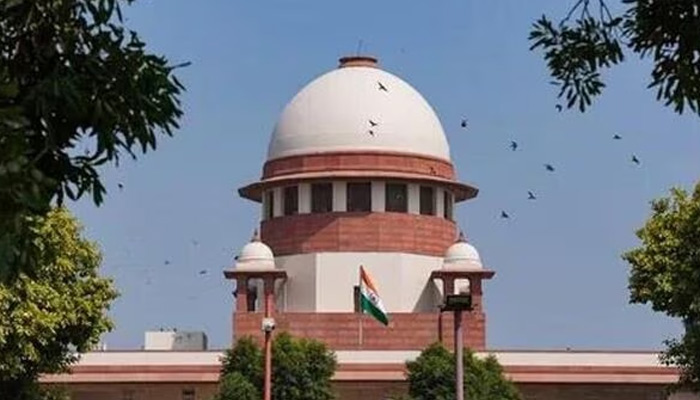Article 35A, which granted special rights to permanent residents of the erstwhile state of Jammu & Kashmir, took away a bundle of fundamental rights of the people of India.
The Supreme Court observed on Monday, while hearing the matter of the abrogation of Article 370 and the restructuring of J& K into two Union territories.
According to a Constitution bench headed by Chief Justice of India Dhananjaya Y Chandrachud, Article 35A, which was added to the Constitution by a Presidential Order in 1954, denuded people of at least three fundamental rights — equality of opportunity for all citizens in public jobs under Article 16(1); acquisition of properties under Articles 19(1)(f) and 31; and right to settle in any part of the country under Article 19(1)(e).
“The 1954 Constitutional Order applied Part III (relating to fundamental rights) to J&K but in the same vein, Article 35A was created which took away three valuable fundamental rights of people by creating exception in three areas: opportunity of government employment, acquisition of property and settlement,” remarked the bench, which also comprised justices Sanjay Kishan Kaul, Sanjiv Khanna, Bhushan R Gavai and Surya Kant.
Article 35A, which was also nullified along with the abrogation of Article 370 in August 2019, accorded special rights and privileges to the natives of J&K, and empowered its legislature to frame any law without attracting a challenge on grounds of violating right to equality of people from other states or any other right under the Indian Constitution. Article 35A was added to the Constitution by exercise of power under Article 370.
Appreciating a submission by solicitor general (SG) Tushar Mehta as to how Article 35A created an artificial distinction not only between the permanent residents and other residents of J&K but also with other citizens in the country, the bench lamented that the impugned constitutional provision laid down a completely different mechanism of application of the fundamental rights.
“By Article 35A, you are taking away at least three fundamental rights. You virtually took away rights under Articles 16(1), 19(1)(f) — as it then existed, and 19(1)(e). While 16(1) was preserved by applying Part III of the Indian Constitution, Article 35A directly took away that right. In fact, all three fundamental rights were essentially taken away by the CO of 1954,” it noted.
The bench further rued that Article 35A also took away the power of judicial review by disabling the court from scrutinising any law of J&K framed under this constitutional provision.
As the court pointed out that Article 35A came into being only after the Centre approved it, Mehta said that it was a “mistake” that the present government has tried to rectify.
Senior counsel Kapil Sibal, appearing for National Conference (NC) leader Mohammad Akbar Lone, submitted that then prime minister Jawaharlal Nehru was strictly against allowing outsiders to buy immovable properties in J&K since he though this could destroy the Valley state.
Mehta retorted that it was a mistake, and that J&K could develop only if there was enough investment made there. “Mistakes of past should not befall on future generations. I am justifying our undoing the mistakes of the past. And this continued till 2019. Please, look at this matter from the point of view of the people in J&K. Till now, people were convinced by those who were supposed to guide them that Article 370 is not a disadvantage but a privilege and that they should keep fighting for it. This is the most unfortunate part. Something, which was an impediment in full realisation of their rights and development, was tutored as a privilege,” he added.
In the clutch of matters being heard by the Constitution bench against ending the special status of J&K, there are at least two petitions, filed in 2014, that had challenged the validity of Article 35A, which now stands abrogated along with Article 370.
In its counter affidavit filed in 2015, the then J&K government had claimed that Article 35A has become a permanent feature of the Indian Constitution, adding the 1954-Presidenial Order granting special rights to permanent residents of the state has been recognised, accepted and acted upon since its enactment and cannot be challenged after six decades.
On the eleventh day of the hearing of the case, SG Mehta continued arguing on behalf of the Centre and the J&K administration. He focussed on an array of rights that were not available to the J&K residents before the entirety of the Indian Constitution was made applicable to the erstwhile state by virtue of the abrogation.
Mehta further emphasised that President’s power to reorganise a state into UTs during the imposition of the President’s Rule was not circumscribed by any constitutional provision or a precedent of the Supreme Court. “President can decide in a given situation that reorganisation is the only way to take a state out of the situation that led to the imposition of Article 356,” he argued.
At one point, the bench asked Mehta whether it would be consistent with the principles of federalism to do away with the need to obtain the views of the state legislature by making Parliament act like a state legislature during President’s Rule. Mehta assured the bench that he would be able to satisfy the legal query when he elaborates on this point on Tuesday when the hearing resumes.
The bench is seized of a raft of petitions, filed by parliamentarians from the NC, Kashmiri citizens, former bureaucrats and various organisations that have laid the challenge to the abrogation of Article 370 soon after the presidential order in August 2019. On July 3, the Supreme Court notified the setting up of a new Constitution bench, comprising its five most senior judges, that began day-to-day hearing in the case from August 2.

